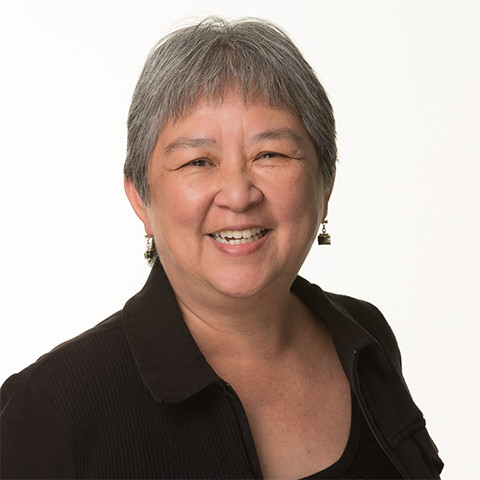Patricia Chow-Fraser honored with IAGLR Lifetime Achievement Award
For IMMEDIATE RELEASE
May 12, 2023
Contact: Neil Rooney, IAGLR President and Awards Committee Co-Chair, [email protected]
TORONTO — The International Association for Great Lakes Research honored Patricia Chow-Fraser last night with its 2023 Lifetime Achievement Award. Chow-Fraser is a leading coastal wetlands scientist and professor of biology at McMaster University in Hamilton, Ontario, where she has worked since 1991.
Upon hearing the news of her award, Chow-Fraser said, “This is a tremendous honor, and one that wouldn’t have been possible without the amazing group of students who contributed to my research, and of course the support of my husband and children who always forgave me when I missed suppers, school concerts, and hockey tournaments. I do it for the love of the lakes, and it’s great when my peers think that it’s worth an award.”
Of this, there is no doubt.
“Pat very early on ventured into coastal wetland research when few others were conducting holistic, ecosystem-level studies aimed at classifying wetland function and health in the Great Lakes,” notes Ontario Tech University Professor Andrea Kirkwood, who nominated her former teacher for the award.
Chow-Fraser’s early work on Cootes Paradise marsh in Hamilton, Ontario, helped to outline the challenges involved in restoring an impaired wetland, according to Titus Seilheimer, fisheries specialist with Wisconsin Sea Grant. This intensive research on a single wetland helped her to develop the tools and understanding of wetland ecology to expand across the Great Lakes. Chow-Fraser now leads a large field and lab research program with sites along the shores of eastern Georgian Bay, Lake Huron, Lake Ontario, and Lake Erie to study some of the world’s largest freshwater ecosystems.
In her work, Chow-Fraser has pioneered the development of ecological indicators that can be used to rapidly assess the health of wetlands. She has also mapped coastal wetlands, pioneered water quality monitoring programs, and developed strategies to recover species at risk, including freshwater turtles, fish, and macrophytes.
Chow-Fraser has earned the reputation of skillfully adopting a wide variety of research tools and innovative approaches. She has used everything from intensive field work and public participation in science, to Geographic Information Systems, remote sensing, eDNA techniques, and drones to measure wetland cover and endangered species habitat.
“What I admire most about Pat is her adaptability in her approach to research,” notes Alana Tedeschi, a Ph.D. cCandidate at McMaster University. “Her work has encompassed the decline of ecosystem integrity across landscapes in the Great Lakes Basin, and she continually uses new tech and innovative strategies to answer evolving questions.”
Chow-Fraser has also been a long-time advocate of community-focused research with real-world applications. As Lyndsay Cartwright, senior research analyst at Toronto and Region Conservation Authority, puts it, “She has stood fast to her convictions for conducting research with applications related to policy, species at risk, or land use decisions. She not only has an impressive research record in the Great Lakes, but also engages the public in her research, building community in areas where she conducts research through public education, citizen science, and advocacy.”
Chow-Fraser’s impressive research and outreach records are rivaled only by her excellence in teaching and mentoring students. She has inspired countless students to go into environmental research and conservation fields.
“Her passion for ecology was evident from the first lecture, and it was contagious and exciting,” notes former student Jonathan Midwood, now a research scientist with Fisheries and Oceans Canada. “Similarly, the high standard of research excellence she demanded of her students was easy to adopt, since she herself demonstrated excellence in all of her individual and collaborative pursuits.”
In particular, Chow-Fraser has been a role model for many women in science. “My career trajectory in science and aquatic ecology can be traced back to my roots in Pat’s lab, where she served as my teacher, mentor, and role model,” Kirkwood recalls. “There were not many female professors during this time period, so it was particularly meaningful to see a professor such as Pat navigate her family and work priorities so adeptly. To be frank, Pat’s tenacity in becoming the preeminent scientist she is today was in spite of the systemic challenges she, like many women academics of her generation, faced during their career.”
As the 18th recipient of IAGLR’s Lifetime Achievement Award, Chow-Fraser is the first woman to receive the award.
“Her experience through her career is one that not many can understand, but her contributions to Great Lakes science as a visible minority must be celebrated,” Tedeschi says. “From Pat, I have learned to be confident in myself not only as a researcher, but as a woman in science. I have learned to speak from the heart when speaking about my work, and to ask questions for ecosystems that deserve answers.”

The International Association for Great Lakes Research is a U.S. 501(c)(3) and Canadian nonprofit organization.
© 2024 International Association for Great Lakes Research

